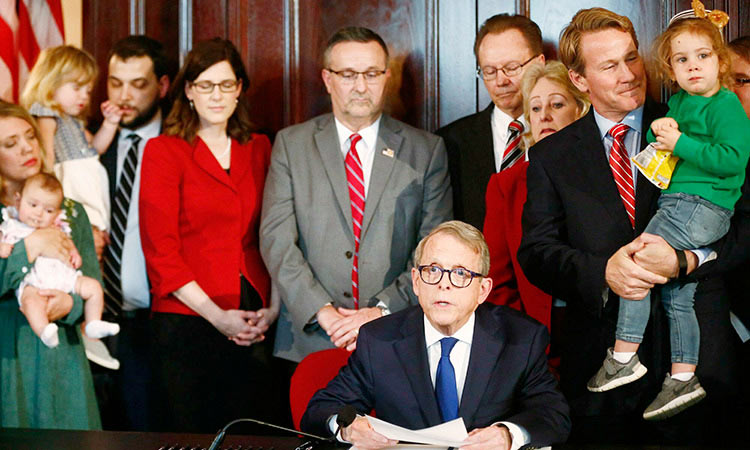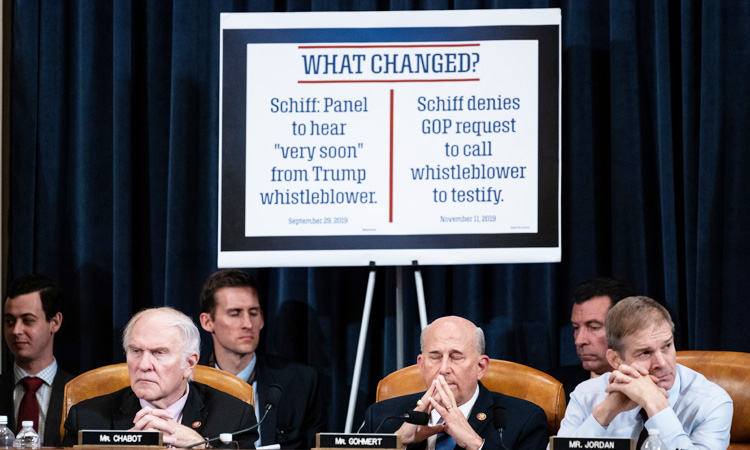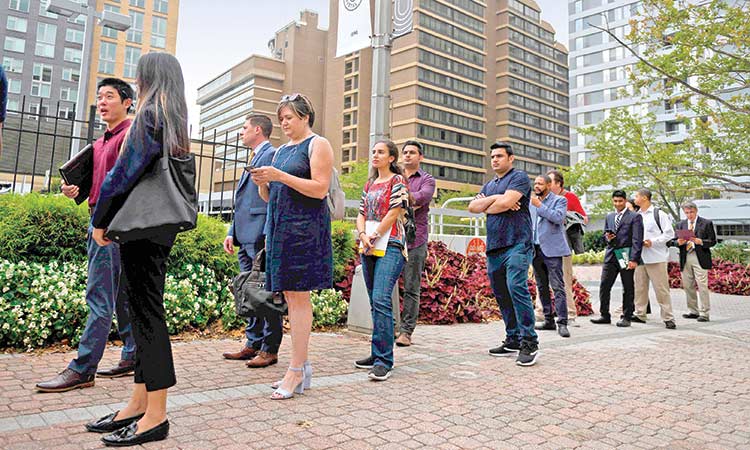‘Unplanned’ forces those willing to watch the reality of abortion

Gov. Mike DeWine speaks before signing a bill imposing one of the nation's toughest abortion restrictions in Columbus, Ohio. AFP
There is a scene in the HBO adaptation of the Stephen Ambrose tome, “Band of Brothers,” in which the men of Easy Company, out on patrol, come across a Nazi concentration camp.
The German guards have abandoned the camp, and the prisoners who remain are but shadows of men — diseased, broken, starved and dying.
The soldiers are struck by the horror before them. They heard the rumours that such camps existed. But seeing it was altogether different. They could no longer deny the dark depths of human depravity. Because they saw it with their own eyes.
In the opening moments of the new biographical feature film, “Unplanned,” Abby Johnson experiences a similar moment of profound consciousness.
Johnson was an enthusiastic advocate for Planned Parenthood, the largest abortion provider in the country, and one of its star employees — the youngest-serving clinic director in the organization’s history, managing a facility in Bryan, Texas.
On a particularly busy Saturday — “abortion day” at the clinic — she is asked to assist with an ultrasound-guided abortion. It’s the first time in her eight years with the organization that she has witnessed one. In a graphic flash of footage, she watches as a tiny formed human — “a 13-weeker” — appears to writhe, flail and fight for its life as the physician literally sucks it out of its mother’s womb. A gush of blood and tissue fills a catheter nearby and the horror is complete.
The moment proved decisive for Johnson. While she had long been a believer in the work of Planned Parenthood and had undergone two abortions herself, her presence in the procedure room that day forced her to recognize the powerful reality of what abortion is and does. She resigns her position almost immediately. Her conversion is complete.
Critics of “Unplanned,” and Johnson’s conversion story more generally, have argued that its one-note portrayal of Planned Parenthood through the eyes of a defector is propaganda for the pro-life movement and not a serious attempt to convert the masses, let alone help women in crisis pregnancies. They have a point, but it’s a small one.
While the movie has been a surprise at the box office and well-received by audiences (92 percent on Rotten Tomatoes), it’s fair to wonder how many abortion advocates are among the film’s viewers. What hard-core activist would knowingly watch a film with such transparent motives?
But it’s also a fair assumption that the film is driven by a much simpler motive: to reveal an objective truth and let truth speak for itself.
Johnson’s story, though trite at moments, is also a sympathetic and relatable one. While she is, for a long time, a true believer in the work of Planned Parenthood, she was driven by the false understanding that the work she was doing was helping women — this, despite the fact that as a clinic counselor, she was trained to steer women toward abortion and as a clinic director was told that maximizing the number of abortions performed was an explicit corporate goal.
Indeed, she was so convinced of the good she was doing that she moved heaven and earth to ensure all of the clinic’s abortion clients were seen just hours before a deadly hurricane made landfall. Oh the irony.
Like so many abortion advocates, she spoke in the euphemisms that shielded the reality of what was actually happening in her clinic (she was a “women’s healthcare” advocate), until she actually saw it and couldn’t deny the truth any longer.
Her story is full of regret but also redemption, and it’s surprisingly not judgmental. None of the women who walk into the clinic seeking abortions are portrayed as villains; they are merely operating under the same assumption as Johnson, that abortion is their only option. It’s healthcare, after all.
It’s this audience in particular — the men and women sympathetic to the plight posed by crisis pregnancies but who have never truly seen the carnage of abortion — who will be most moved by this film. They will understand as Johnson eventually does, that the best way to help women is to support them during their pregnancies and as mothers in the years after.
Because they will see what abortion truly is with their own eyes and be unable to deny the truth any longer.







